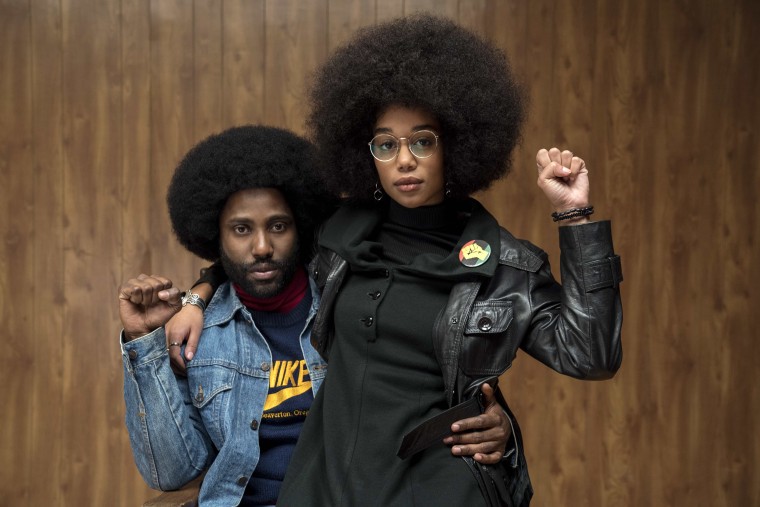 BlacKkKlansman press still
Focus Features
BlacKkKlansman press still
Focus Features
Boots Riley, founder of the communist hip-hop group The Coup and writer/director of the anti-captialist summer hit Sorry To Bother You, has shared a critique of Spike Lee's BlacKkKlansman on Twitter. (warning: contains spoilers).
Lee's film is based on the true story of an African-American police officer named Ron Stallworth who infiltrated the Ku Klux Klan in Colorado Springs in the late '70s. In Riley's estimation, Stallworth's history as a police informant, his autobiography, and the fictionalized changes in the film all contribute to a movie that overlooks law enforcement's role in the targeting and disruption of pro-black civil rights organizations.
Riley begins his essay praising Lee as "a huge influence" on Riley's career as a director. "Although I'm gonna lay out my disagreement, I hold him in highest respect as a filmmaker." However, Riley posits that without the film's fictional elements – Stallworth's Jewish partner (played by Adam Driver), the film's explosive climax, and police officers confronting racism in their ranks – Stallworth would be the film's villain, not a hero.
To further back his claim, Riley points to police activities Stallworth documented in his original memoir. Stallworth writes of infiltrating radical black organizations for three years ("not one event like the movie portrays.") F.B.I. documents retrieved through the Freedom of Information act suggest that Stallworth could have been one of many police informants used in the Bureau's COINTELPRO program, which notoriously infiltrated and undermined black radical groups.
Riley claims that when authorities did infiltrate white supremacist groups, it was not to prevent them from spreading. "COINTELPRO papers also show us that when White Supremacist organizations were infiltrated by the F.B.I. and the cops, it was not to disrupt them... It was to use them to threaten and/or physically attack radical organizations."
The essay continues with aesthetic critiques of the film, and further discussions of its political motivations, timing, and position in relation to Spike Lee's film Chiraq. It also mentions a $200K payday Lee's advertising firm Spike DDB received from the NYPD for consultancy on an ad campaign meant to "improve the relationship between police and minority communities.” Riley writes: "Whether it actually is or not, BlackKklansman feels like an extension of that ad campaign."
Read Riley's essay below via Twitter.


